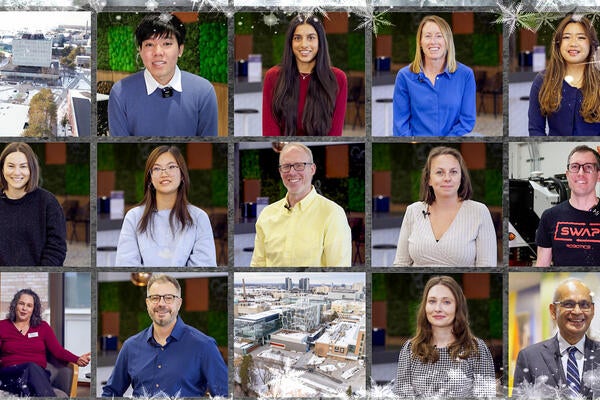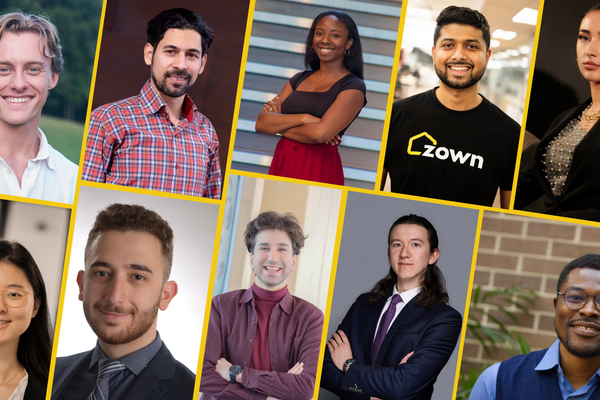
Waterloo competes at world’s richest student startup competition
New rechargeable battery invented at Waterloo will go up against new tech from Yale, MIT and Harvard for $1.3 million+

New rechargeable battery invented at Waterloo will go up against new tech from Yale, MIT and Harvard for $1.3 million+
By Staff Marketing and Strategic CommunicationsA zinc-air rechargeable battery that has the potential to revolutionize how energy is stored is at the core of the University of Waterloo’s pitch at the prestigious Rice Business Plan Competition.
The University of Waterloo startup, called Oxy-Zn, is the only Canadian team competing for more than $1.3 million in cash and prizes in Houston, Texas from April 10-12.
“Waterloo has a worldwide reputation for innovation so it should be no surprise that we’re competing against universities like MIT, Yale and Harvard,” says Saleem Ahmad, a team member and student in Waterloo’s Master of Business, Entrepreneurship and Technology (MBET) program.
Oxy-Zn is pitching a breakthrough zinc-air rechargeable battery developed in Waterloo’s Applied Nanomaterials and Clean Energy Laboratory by a team of researchers led by Zhongwei Chen, an associate professor in the Department of Chemical Engineering.
Rechargeable battery is cheaper, safer and greener
The zinc-air battery is cheaper, safer and better for the environment than lithium-ion batteries. It has the potential to fundamentally change the renewable energy market - storing energy from everything from wind turbines to electric cars.

The battery, tested in Chen’s lab, has been recharged up to 3,000 times, which means it could keep an electric car on the road for more than 10 years.
Backed by nine patents, Oxy-Zn plans to bring the technology to the growing e-bike market, followed by smart grid storage and automotive applications. With the support of the University’s Waterloo Commercialization Office (WatCo), Oxy-Zn is hoping to capture a share of the multi-billion dollar battery market.
“We have a breakthrough technology, led by a top-notch business team,” says Ahmad. “Our expectations are very high for our performance in the competition.
Waterloo is one of 42 finalists chosen from 500 applicants. While most finalists are from U.S., there are teams from India, Tiawan, Kenya and England. The competition is sponsored by various organizations, businesses and government agencies, including the U.S. Department of Energy and NASA.
The Waterloo team is made up of two groups - a business team that includes MBET students and others from the Faculty of Mathematics and Engineering, as well as a technical team made up of students in the Faculties of Science and Engineering.
“We look forward to the opportunity to network with investors and potential partners to take our business to the next level,” says Ahmad.

Read more
Here are the people and events behind some of this year’s most compelling Waterloo stories

Read more
A winter holiday message from President Vivek Goel

Read more
From transforming solutions for homeownership to advancing health care interventions, Waterloo talent continues to disrupt industries and drive change
The University of Waterloo acknowledges that much of our work takes place on the traditional territory of the Neutral, Anishinaabeg, and Haudenosaunee peoples. Our main campus is situated on the Haldimand Tract, the land granted to the Six Nations that includes six miles on each side of the Grand River. Our active work toward reconciliation takes place across our campuses through research, learning, teaching, and community building, and is co-ordinated within the Office of Indigenous Relations.